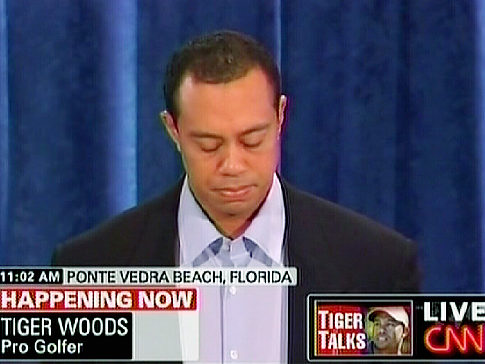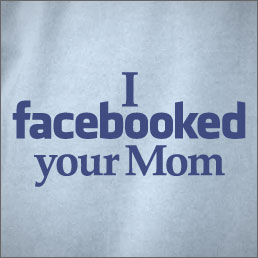I am constantly amazed. Not only that. I seem to be constantly amazed at things that happen … well … constantly. You’d think that seeing something over and over and over would eventually wear you down and erode wonder, awe and amazement. Not for simple minded people like me. I sit back and watch people do the same silly thing over and over. And I say to myself, “wow!” … “that is amazing!”
What the heck am I talking about?
It is the audacious certainty with which people predict the future.
 And I’m not talking the simple stuff. Things like, “if you don’t brush your teeth will rot.” Or, “if you constantly lie eventually people won’t trust you.” Or, “if you’re disciplined and sacrifice today you can reap the benefits tomorrow.” That is the simple stuff … the natural and predictable consequences to simple actions.
And I’m not talking the simple stuff. Things like, “if you don’t brush your teeth will rot.” Or, “if you constantly lie eventually people won’t trust you.” Or, “if you’re disciplined and sacrifice today you can reap the benefits tomorrow.” That is the simple stuff … the natural and predictable consequences to simple actions.
No, I’m talking about situations that are hopelessly complex, that have multivariate and fast changing events, that computers the size of Big Blue could never figure out.
But here we are with our little 3 lb brains and not only have we figured it all out (and well into the next decade no less!) … but we do so with absolute, unapologetic and unqualified certainty.
This is more than just the “half full vs. half empty” syndrome. It is not a question of style, character, or even slant. It is the ability of people to see the same data, the same information, the same images, the same facts and draw opposite conclusions with the certainty of the sun coming up tomorrow.
Welcome to the health care debate.
- It will decrease the deficit. And it will raise the deficit.
- It will increase abortions. It will decrease abortions.
- It will help business. It will hurt business.
The Wall Street Journal says that health care reform is leading to the “wholesale destruction of wealth and capital.” The White House says it simply is closing a loophole. According to one Congressman the health care reform will lead to more aborted babies. According to Bart Stupak nothing changes. According to columnist and commentator Fred Hiatt health care reform is a ‘fiscal catastrophe.’ According to a former official of the Congressional Budget Office, Mr. DeWater, it will reduce the deficit.
No wonder the media reports that the average American is confused. The so-called ‘experts’ are not only disagreeing. They are violently disagreeing with even more violent confidence and conviction.
I suspect that the average American isn’t as much confused as he or she is simply recognizing the simple fact that all the “experts” ignore. We just don’t know exactly what is going to happen. There’s some good. There’s some bad. There’s some risk. There’s some opportunity.
But we just don’t know. None of us do.
In many ways the health care reform package is a lot like life. It is hard to know what the future holds.
So what do you do? You go back to those simple, historically proven, reliable things you can depend on.
Like brushing (and flossing!) so your teeth don’t rot. And telling the truth so you can earn someone’s trust and confidence. And working hard and sacrificing today so you and your family can benefit some day down the road.
As for the other stuff, it would be refreshing if someone said what everyone else has already figured out:
“Who knows?”
 Recently she enlightened me on another recent event – the President’s
Recently she enlightened me on another recent event – the President’s  Not only do we have a plethora of experts on public apologies, it seems that a good portion of those experts have about as much compassion and forgiveness in them as
Not only do we have a plethora of experts on public apologies, it seems that a good portion of those experts have about as much compassion and forgiveness in them as  Have you updated your blog? Gotten any comments lately? Any trackbacks? And your Facebook page? What is your friend count? Who’s writing on your wall? How about your Twitter feed? Have you checked in with your Google account? Gone through your Google alerts? Charted your progress with Google Analytics? Have you checked in with Foursquare? Did you get a new badge? How are your Twitter client numbers? Is your following getting bigger? Are your “retweets” growing?
Have you updated your blog? Gotten any comments lately? Any trackbacks? And your Facebook page? What is your friend count? Who’s writing on your wall? How about your Twitter feed? Have you checked in with your Google account? Gone through your Google alerts? Charted your progress with Google Analytics? Have you checked in with Foursquare? Did you get a new badge? How are your Twitter client numbers? Is your following getting bigger? Are your “retweets” growing? Now I’ll admit that I’m skeptical about all such research. One reason is that I do that for a living. I know how tricky it is to measure ANYTHING related to public opinion, much less values and beliefs. Measuring trust is right up there with predicting the path of nanoparticles. In fact — to carry the quantum physics analogy further — you can spend a lot of time just
Now I’ll admit that I’m skeptical about all such research. One reason is that I do that for a living. I know how tricky it is to measure ANYTHING related to public opinion, much less values and beliefs. Measuring trust is right up there with predicting the path of nanoparticles. In fact — to carry the quantum physics analogy further — you can spend a lot of time just  I wonder if Eisenberg would be so charitable if someone else was Tweeting about him every time he, say, applied for a job or pitched a show idea.
I wonder if Eisenberg would be so charitable if someone else was Tweeting about him every time he, say, applied for a job or pitched a show idea. Some may focus on the flaws of Ted Kennedy. But whether you are right or left, conservative or liberal, religious or secular, what should him a role model for us all was his unique combination of two things: genuine personal compassion combined with a strong work ethic.
Some may focus on the flaws of Ted Kennedy. But whether you are right or left, conservative or liberal, religious or secular, what should him a role model for us all was his unique combination of two things: genuine personal compassion combined with a strong work ethic. The first was about the wolf shirt phenomenon on Amazon.
The first was about the wolf shirt phenomenon on Amazon. 
